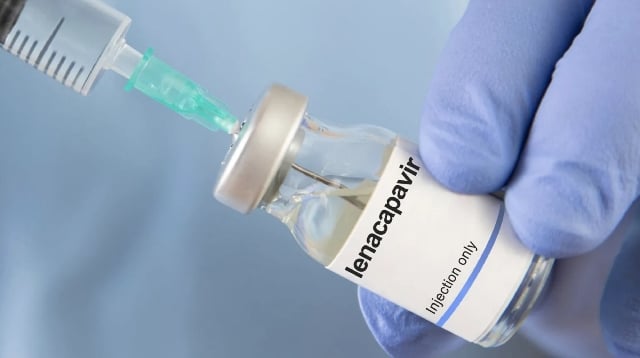The global fight against HIV/AIDS has received a significant boost with the announcement of a drastically reduced price for Lenacapavir, a groundbreaking injectable HIV prevention drug. Currently priced at $28,000 per person annually, the cost will plummet to a mere $40 in 120 low- and middle-income countries by 2027, representing a reduction of over 99.9%. This dramatic price drop, facilitated by a collaborative effort involving the Clinton Health Access Initiative, the Gates Foundation, and other organizations like Wits RHI, is poised to revolutionize HIV prevention efforts and potentially accelerate the world’s progress towards ending the HIV/AIDS epidemic. The lower cost will enable millions to access this crucial preventative medication, particularly in regions heavily burdened by the virus.
Lenacapavir, administered via injection twice a year, provides six months of continuous protection against HIV infection. Its long-acting nature offers a significant advantage over the existing standard of care, pre-exposure prophylaxis (PrEP), a daily oral pill also costing $40 annually. While PrEP has proven effective, the daily regimen can pose adherence challenges for some individuals, and societal stigma associated with taking a daily pill for HIV prevention can further complicate consistent usage. The less frequent dosing of Lenacapavir removes these barriers, offering a more discreet and convenient prevention option, and ultimately broadening access to vital preventative care. This simplified approach can significantly impact populations disproportionately affected by HIV, such as adolescent girls and young women, members of the LGBTQ+ community, sex workers, and people who use intravenous drugs.
The development and rollout of Lenacapavir marks a significant milestone in HIV prevention. Clinical trials have demonstrated impressive results, leading to endorsements from prominent health organizations, including the World Health Organization. The drug’s mechanism, preventing viral replication within cells, offers a powerful tool in combating the spread of HIV. The anticipated widespread availability of Lenacapavir in lower-income nations is expected to dramatically alter the landscape of HIV prevention, bringing hope and protection to those most in need. The initiative addresses a critical gap in global health equity, ensuring that life-saving medications are accessible regardless of economic circumstances.
The impact of this reduced pricing is anticipated to be substantial. One study suggests that increasing access to Lenacapavir to just 4% of the population could potentially avert up to 20% of new HIV infections. Beyond its preventative capabilities, Lenacapavir also holds promise as a treatment option for individuals already living with HIV, further expanding its potential to combat the virus on multiple fronts. The drug has already received approval from both the US Food and Drug Administration and the European Commission, underscoring its safety and efficacy. While the generic version destined for lower-income countries awaits regulatory approval, it is expected to be available within 18 months.
This announcement comes at a crucial juncture in the global fight against HIV/AIDS. Recent funding cuts to international aid programs, particularly those supporting HIV/AIDS initiatives, have created challenges in sustaining and expanding access to treatment and prevention. Despite significant progress in reducing HIV infection rates and AIDS-related deaths since 2000, challenges persist. In 2022 alone, approximately 1.3 million people contracted HIV, and over 600,000 died from AIDS-related illnesses. This underscores the ongoing need for readily accessible and affordable prevention and treatment options.
South Africa, bearing the heaviest burden of HIV cases globally with nearly eight million people living with the virus, stands to benefit greatly from the availability of affordable Lenacapavir. The South African Department of Health has expressed strong support for this initiative, recognizing its potential to enhance access to life-saving treatment. The rollout of Lenacapavir in low- and middle-income countries promises not only increased access to a potent prevention tool but also a renewed hope in the global effort to ultimately eradicate HIV/AIDS. The partnership between international organizations, governments and local communities is crucial for ensuring successful implementation and maximizing the impact of this life-changing medication. The real work, as experts suggest, lies in building demand, securing commitments, and strengthening healthcare systems to facilitate rapid introduction and widespread adoption of this promising new tool in the fight against HIV.














